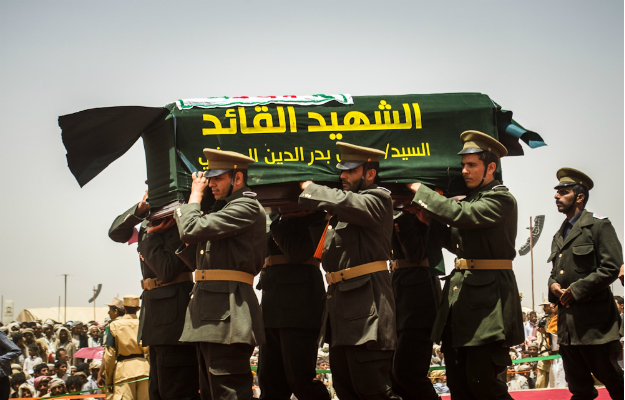 Tik Root | Foreign Policy
Tik Root | Foreign Policy
SANAA, Yemen — As a seemingly endless line of cars snaked its way into the northern Yemeni city of Saada, the atmosphere was festive. The people had come to attend the funeral of Hussein Badreddin al-Houthi, the man whose name became synonymous with one of the country's major political and religious movements. Yet while the Houthis and their supporters were no doubt mourning their leader's death, the event, which drew hundreds of thousands of attendees earlier this year, was also a celebration of sorts.
Such a gathering would have been unthinkable only a few years ago when the whole of Saada governorate was under a wartime blockade. But after nearly a decade of fighting with the central government, the Houthi movement has enjoyed a rapid post-Arab Spring increase in both support and legitimacy.
"They are sitting at the table negotiating with all the others, including those that fought these wars against them," said Jamal Benomar, the U.N. special advisor on Yemen, on a recent trip to Saada. This new dynamic is a welcome change from the recent past, when Yemeni officials routinely derided the Houthis as Iranian-backed "terrorists" (a claim the group vehemently denies). But the former rebels' slingshot-like entrance into mainstream politics is also raising serious concerns about what comes next.
CONTINUE READING AT FOREIGN POLICY...